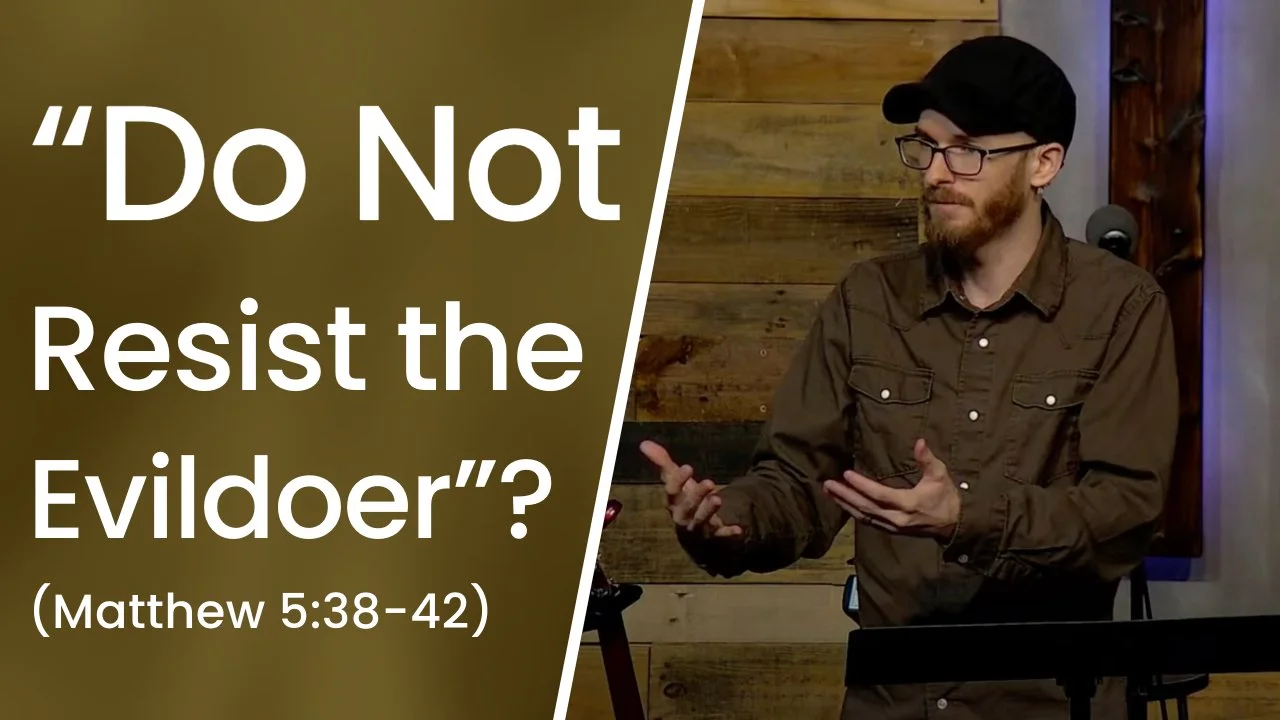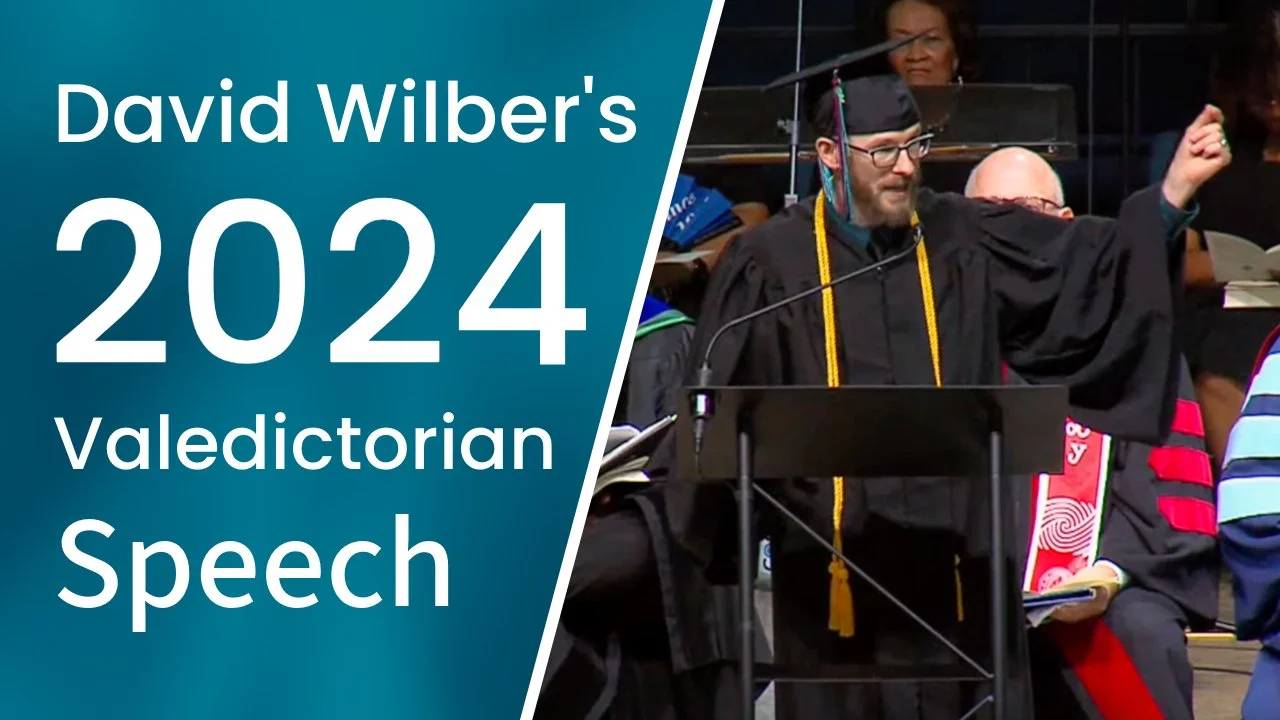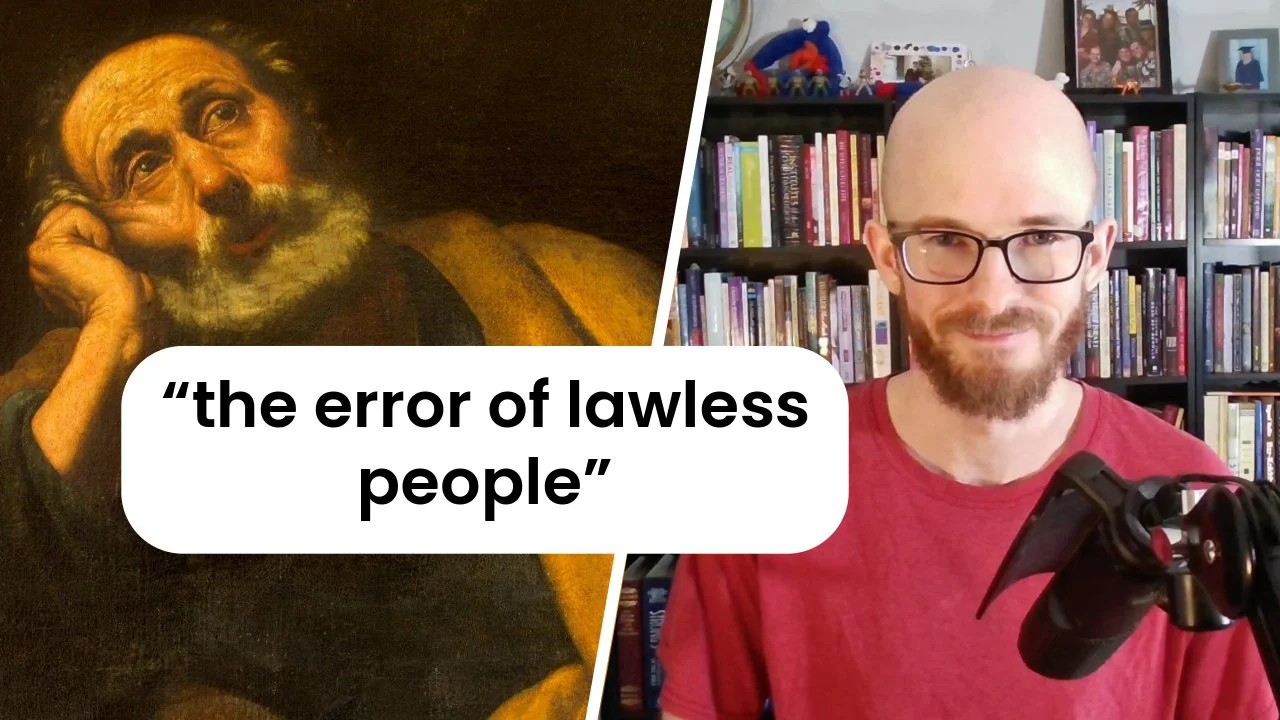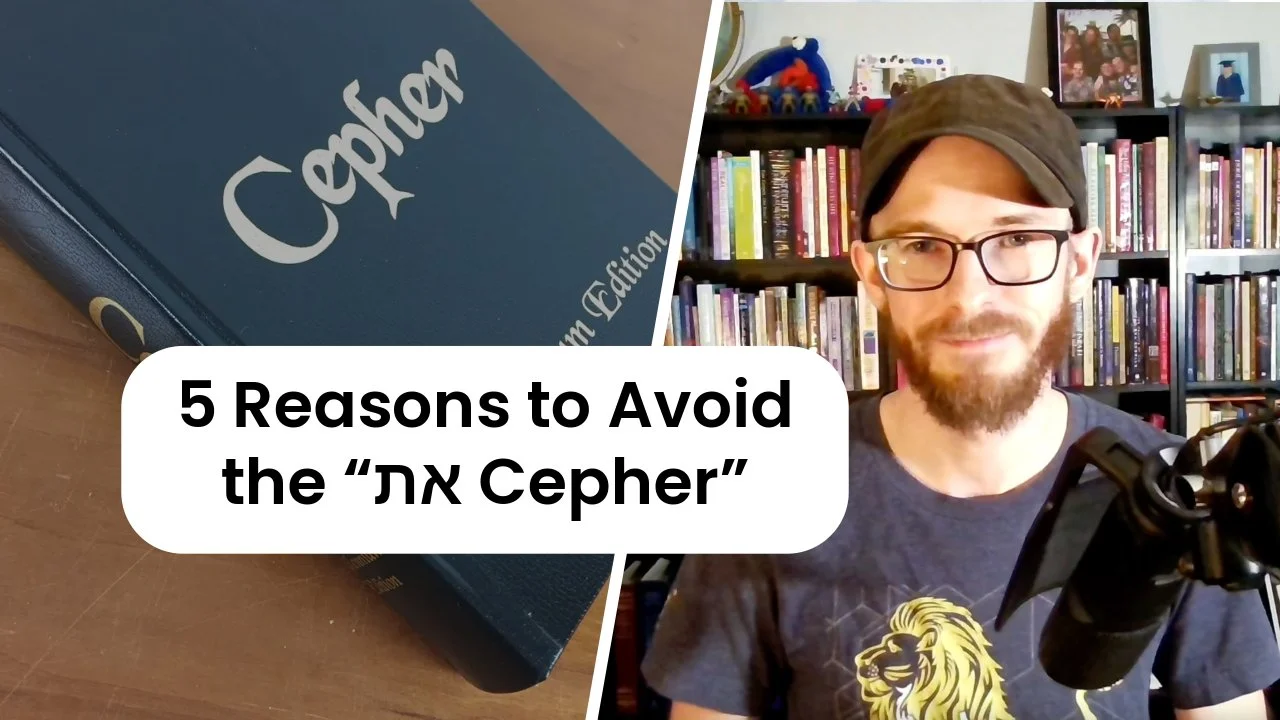In a recent video, Rabbi Tovia Singer argues that Paul detested the Law of Moses and taught that Christians don’t need to keep it. However, Rabbi Singer’s objection relies on an outdated, antinomian reading of Paul, which does not accurately reflect the true Paul depicted in the Pauline epistles and Acts. In this video, we address Rabbi Singer’s claims and clarify Paul’s stance on the Law of Moses.
Malachi: Remember the Law of Moses
What it Means to Fulfill the Law of Moses (Matthew 5:17)
What did Jesus teach about the Law of Moses? Did he say that he came to bring it to an end, or did he want his followers to obey it? Matthew 5:17-20 is a key passage that speaks to this question. In this video, we focus on verse 17, where Jesus says, “Do not think that I have come to abolish the Law or the Prophets; I have not come to abolish them but to fulfill them.” We explore what Jesus meant by the terms “abolish” and “fulfill.”
Zechariah: YHWH Has Remembered
"Do Not Resist the Evildoer"? (Matthew 5:38-42)
How should believers respond when someone wrongs us? In Matthew 5:38-42, Yeshua offers a surprising answer to that question. He references the “eye for an eye” principle found in the Torah, and then proceeds to explain how he expects his followers to respond when they are slapped, sued, and mistreated.
The End of All Mankind (Ecclesiastes 7:1-6)
Confirm Your Calling: The Danger of False Teachers (2 Peter 2:10b-22)
Setting the Record Straight: Paul and the Law of Moses (Acts 21:17-26)
How Jesus Fulfilled the Law of Moses (Matthew 5:17-20)
What did Jesus mean when he said that he came to "fulfill" the Law of Moses? How did Jesus expect his followers to relate to the commandments and surpass the righteousness of the scribes and Pharisees? In this sermon, David Wilber explores Matthew 5:17-20 and Jesus’s explanation of his mission in relation to the Torah.
Why and How to Celebrate Shavuot / Pentecost as Christians
Faith and Works: Do James and Paul Disagree on Justification?
Are James and Paul at odds in their teachings on faith, works, and justification? Many argue that they are. Notably, Martin Luther, the prominent Reformer, believed that James’s epistle contradicts Paul's teachings, and therefore he doubted its authenticity. But is there a way to reconcile the apparent contradiction between these two writers?
David Wilber's 2024 Valedictorian Speech
I was honored to be selected as the Valedictorian of my graduating class at Charlotte Christian College and Theological Seminary. At the graduation ceremony, I had the opportunity to deliver a short speech. In my address, I discussed Psalm 1 and emphasized the true happiness ("blessedness") that comes from diligently studying the Word.
Haggai: Get Your Priorities Straight (Minor Prophets, Major Messages)
The Messiah’s Name in Hebrew
How do we know for a fact that the Messiah’s name in Hebrew is “Yeshua”? How do we know for a fact that modern versions of the name that are popular on the internet (Yahusha, Yahshua, Yahushua, etc.) are inaccurate? One establishes these facts by simply looking at the way the name appears in the Hebrew and Greek texts of the Bible.
Do Modern Bible Versions Intentionally Mistranslate 1 Timothy 6:19?
The YouTube channel “abide in the Word” has recently made a video claiming that modern Bible versions (NIV, ESV, NASB, etc.) have “willfully, flagrantly, knowingly adulterated the word of God” through their translation of 1 Timothy 6:19. Is that true, or has the creator of this video missed something? We explore this question in this short video.
Passover and the Gospel: Why and How to Celebrate Passover / Unleavened Bread as Christians
Does Matthew 22:23-33 prove that the Book of Enoch is Scripture?
Did the Messiah consider the Book of Enoch to be "Scripture"? Adam Fink from Parable of the Vineyard says yes. Adam claims that Yeshua uses the Book of Enoch in Matthew 22:23-33 when he corrects the Sadducees regarding the resurrection, directly referencing it as "Scripture." In this short video, we examine this passage to see if it supports Adam’s claim.
Peter's Warning About the Antinomians Who Twist Paul's Letters (2 Peter 3:15-17)
In 2 Peter 3:15-17, Peter warns that Paul’s letters contain content that is “hard to understand” and which “the ignorant and unstable” misinterpret. He then connects the mishandling of Paul’s letters to “lawless people.” In this video, I argue that 2 Peter 3:15-17 represents Peter’s warning regarding antinomians (individuals who reject God’s law) who misinterpret passages in Paul’s letters to advocate for lawlessness.
5 Reasons to Avoid the “את Cepher” Bible
Recently, a “Bible” known as the את Cepher has been gaining popularity among some believers. It incorporates several non-inspired books in its collection, contains numerous inaccurate transliterations and translations, and plagiarizes Wikipedia and other sources. In this video, I explain why you should avoid this “Bible.”





















